The Benefits of the Bond Between Children and Dogs
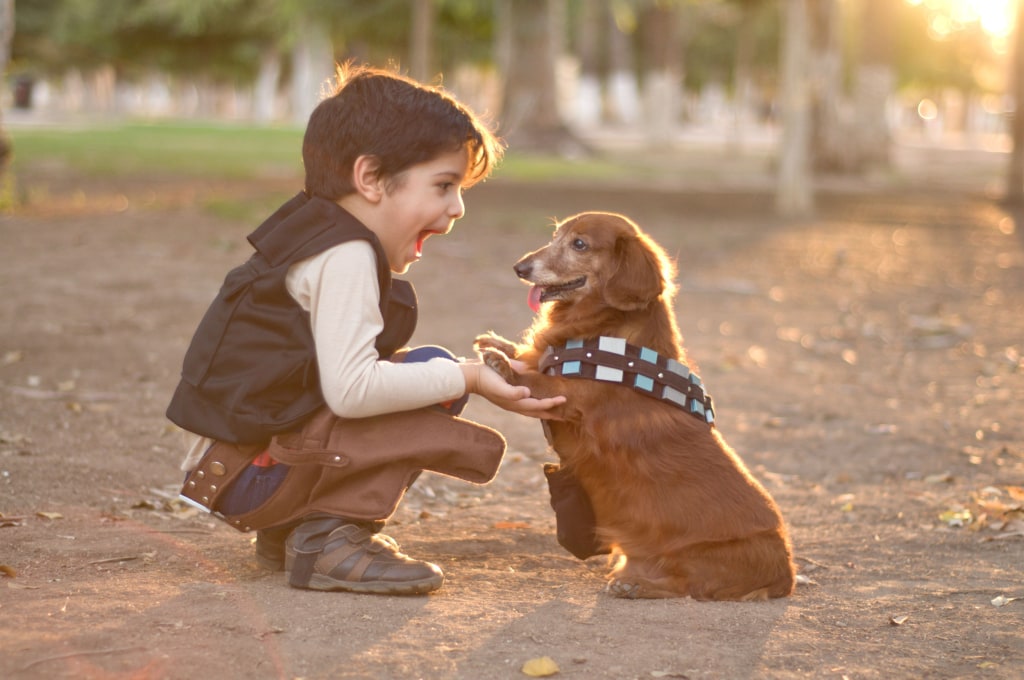
The bond between children and dogs offers numerous emotional, mental, and physical health benefits. Dogs have a unique ability to provide comfort, companionship, and unconditional love to children.
Emotionally, having a dog can help reduce stress, anxiety, and loneliness in children. Dogs are often seen as loyal friends who can provide a comforting presence during difficult times. The bond formed with a dog can also enhance a child's self-esteem and sense of worth.
In terms of mental health, interacting with dogs can help improve mood and increase feelings of happiness. Dogs offer a source of constant support and can serve as nonjudgmental listeners when a child needs someone to talk to.
On the physical front, owning a dog promotes an active lifestyle for children. Taking care of a dog involves daily exercise such as walks or playtime in the yard. This helps children stay physically active and encourages healthy habits from an early age.
Overall, the bond between children and dogs is truly special, offering an array of benefits that contribute to the well-being and development of both the child and the dog.
Emotional and Mental Health Benefits

One of the most significant benefits of the bond between children and dogs is the positive impact it has on their emotional and mental health. Numerous studies have shown that interactions with dogs can help decrease stress levels, reduce feelings of loneliness, and improve overall mood. Dogs can provide a sense of comfort, companionship, and unconditional love to children, creating a safe space for them to express their emotions. The presence of a dog can also help children develop effective coping mechanisms by having someone to rely on during challenging times.
Furthermore, the bond between children and dogs has been found to increase levels of serotonin and dopamine, which are neurotransmitters responsible for feelings of happiness and well-being. This can be particularly beneficial for children with anxiety or depression.
Overall, the emotional and mental health benefits of the bond between children and dogs highlight the valuable role that dogs can play in supporting a child's emotional development and overall well-being.
Physical Health Benefits
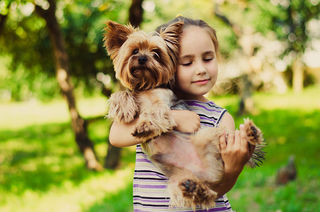
Owning a dog can have numerous physical health benefits for children. One of the most obvious benefits is the increase in physical activity. Dogs require regular exercise, whether it's going for walks or playing fetch, which encourages children to be more active and can help prevent sedentary habits.
Studies have shown that children who have a dog are more likely to engage in physical activities such as walking, running, and playing outdoors. This increased activity can lead to improved cardiovascular health, stronger muscles, and better overall fitness levels.
Additionally, having a dog at home can also help reduce the risk of allergies and asthma in children. Research has suggested that early exposure to dogs and other pets may strengthen the immune system and reduce the likelihood of developing allergies later in life.
The physical health benefits of the bond between children and dogs cannot be overlooked. By promoting regular exercise and potentially reducing the risk of allergies, owning a dog can contribute to a healthier lifestyle for children.
Developing Responsibility and Empathy

One of the major benefits of the bond between children and dogs is the development of responsibility and empathy. Caring for a dog requires a great deal of responsibility, including feeding, grooming, and exercising. By assigning these tasks to children, parents can teach them about accountability and taking care of another living being.
Through their interactions with dogs, children also learn empathy. Dogs have the ability to sense emotions, making them excellent companions for children who may be experiencing difficult emotions. When a child sees their dog respond with love and understanding, it helps them develop empathy and compassion towards others.
Moreover, taking care of a dog teaches children that their actions have consequences. They learn that neglecting their responsibilities can negatively impact the well-being and happiness of their furry friend. This understanding allows children to develop a sense of empathy towards animals and humans alike.
By nurturing responsibility and empathy through their bond with dogs, children gain valuable life skills that promote kindness, compassion, and understanding in their relationships with others.
Teaching Children Responsibility through Caring for a Dog
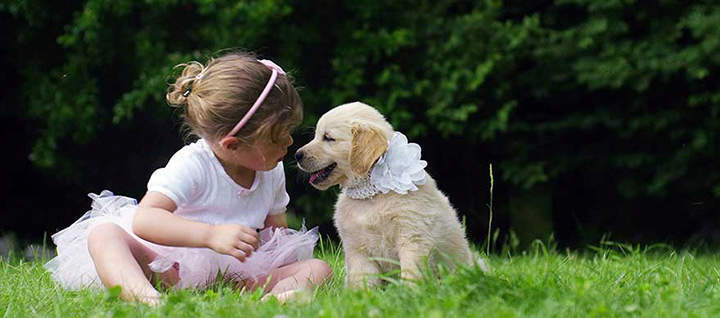
Teaching children responsibility through caring for a dog is a valuable life lesson that can have a lasting impact. When children are involved in the daily care of their furry friend, they learn the importance of being accountable for another living being. This includes tasks such as feeding, grooming, and exercising the dog.
By taking on these responsibilities, children develop a sense of ownership and learn how their actions directly affect the well-being of their pet. They understand the need for consistency and routine, as dogs rely on them for their basic needs. This fosters a sense of dependability as they realize that their dog is reliant on them.
Furthermore, caring for a dog teaches children about empathy and compassion. Through this experience, they understand that animals have emotions and needs just like humans do. They learn to be sensitive to their pet's feelings and develop a nurturing instinct.
Overall, teaching responsibility through caring for a dog not only benefits the child but also strengthens the bond between them and their four-legged companion. It is an essential aspect of their upbringing that helps shape them into responsible individuals who are capable of caring for others.
Fostering Empathy and Compassion through the Bond
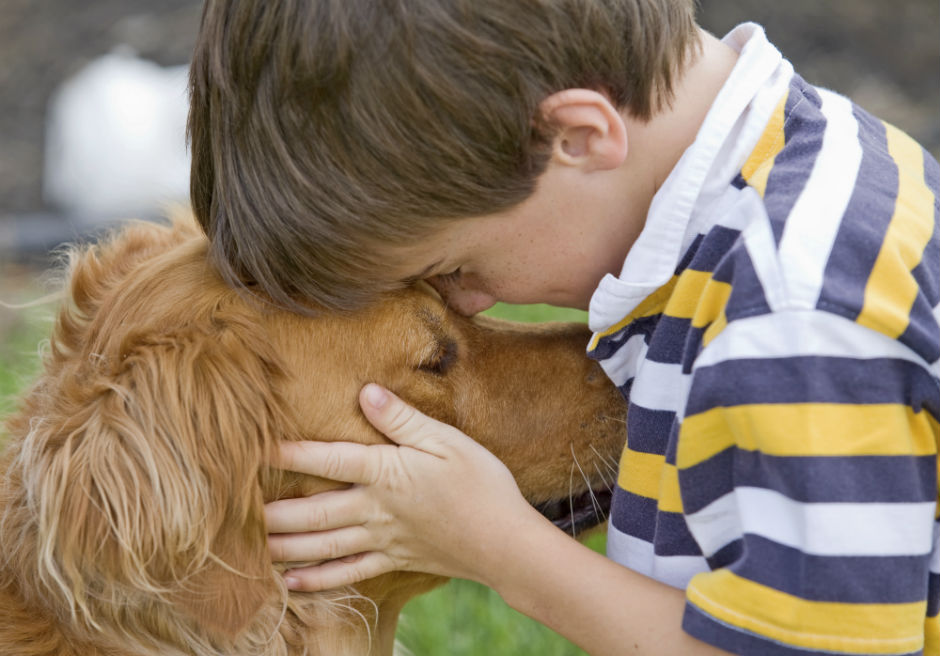
Dogs have a remarkable ability to bring out the best in children, teaching them important life lessons and values such as empathy and compassion. The bond between children and dogs creates a unique opportunity for young ones to develop these crucial qualities.
When children have a dog companion, they learn to consider the needs of another living being. They witness first-hand the importance of providing care, kindness, and understanding. By taking on responsibilities such as feeding, walking, and grooming their furry friend, children develop empathy as they recognize the dog's dependence on them.
In addition, dogs have an innate ability to sense emotions and provide comfort when a child is feeling sad or upset. This interaction fosters compassion as children learn to identify and empathize with their dog's emotions.
Through their relationship with dogs, children develop a sense of responsibility not only towards their pet but also towards other living creatures. This invaluable lesson in empathy and compassion translates into their interactions with people too.
Overall, the bond between children and dogs offers an incredible opportunity for young ones to cultivate empathy and compassion, qualities that will shape them into caring individuals who are sensitive towards the needs of others.
Promoting Social Skills and Communication

Promoting Social Skills and Communication:
Having a dog as a companion can greatly benefit children in terms of developing social skills and promoting effective communication. Dogs are naturally social creatures and can provide children with ample opportunities to interact with others. Whether it's taking the dog for walks in the neighborhood or attending dog training classes, these activities encourage social interaction with other dog owners and trainers.
Children who have a dog often feel more comfortable approaching and talking to other people. They learn how to share their experiences and engage in conversations about their furry friend. Additionally, having a dog can help children overcome shyness and build confidence when interacting with others.
Furthermore, dogs can also aid in improving communication skills. Children often form strong bonds with their dogs, leading them to talk, listen, and express themselves more openly. They develop empathy towards their canine companions and learn to interpret non-verbal cues such as body language and facial expressions.
In conclusion, having a dog provides children with valuable opportunities to enhance their social skills and communication abilities. The presence of a loyal four-legged friend helps them navigate social situations with ease while fostering meaningful connections with fellow dog lovers.
Enhancing Social Skills through Dog Ownership
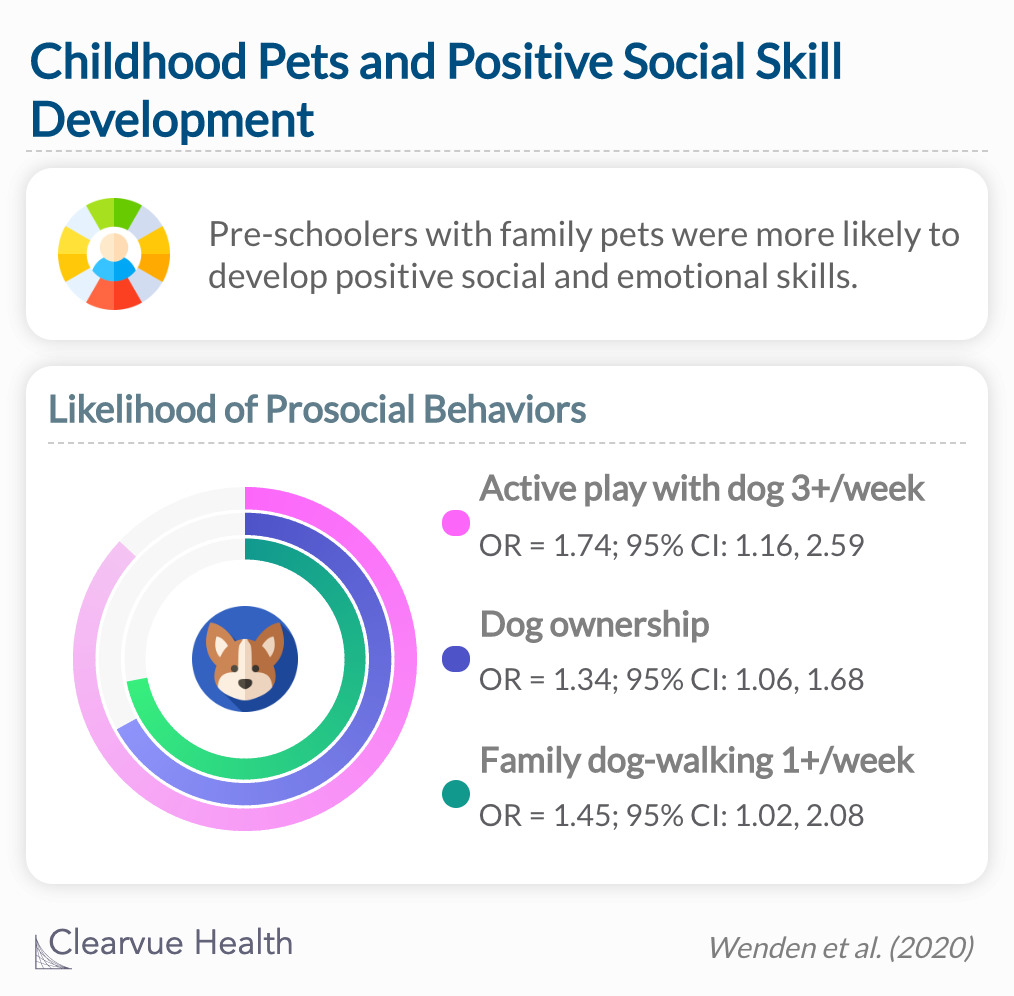
Dog ownership can greatly enhance a child's social skills, allowing them to develop important social interactions and communication abilities. Interacting with a dog provides children with opportunities to practice their social skills in a safe and nonjudgmental environment. Dogs are known for their unconditional love and acceptance, which can help children feel more confident and secure in social situations.
When children take their dogs for walks or visit dog parks, they have the chance to meet and interact with other dog owners and their pets. These interactions provide valuable opportunities for children to learn how to approach new people, engage in conversation, and make new friends. Dogs can act as a common interest that facilitates social connections between children, leading to the development of lasting friendships.
Through activities such as training or participating in dog-related events, children also learn teamwork and cooperation. They have to communicate effectively with their dogs, using clear commands and cues, which helps them refine their communication skills.
Overall, owning a dog can be an excellent way for children to enhance their social skills by providing numerous opportunities for interaction, communication, and building relationships with others.
Improving Communication and Language Development

One of the remarkable benefits of the bond between children and dogs is the improvement it brings to communication and language development. Interacting with a dog requires verbal and non-verbal communication, allowing children to enhance their communication skills in a natural and comforting setting.
Dogs are great listeners, patiently responding to a child's words, gestures, and emotions. This interaction promotes language development as children learn to express themselves clearly and effectively. They can practice vocabulary, sentence formation, and storytelling skills while sharing their thoughts or reading aloud to their canine companion.
Furthermore, dogs can be excellent motivators for reluctant speakers or those with speech delays. Children may feel more confident speaking in front of their furry friend without fear of judgment or criticism. As a result, they gain increased fluency and articulation skills.
The unique bond between children and dogs not only fosters emotional connections but also serves as a springboard for improving communication and language abilities. By engaging in meaningful conversations with their dogs, children develop essential skills that will benefit them throughout their lives.
Building Self-Confidence and Self-Esteem

Owning a dog can greatly contribute to the development of self-confidence and self-esteem in children. As they take on responsibilities such as feeding, grooming, and training their furry companion, children experience a sense of accomplishment and mastery. Successfully caring for a dog provides them with a tangible achievement, enhancing their self-confidence and belief in their abilities.
Furthermore, dogs are known for their unwavering love and acceptance. They provide unconditional support and companionship, helping children feel valued and accepted just as they are. This constant source of affection boosts their self-esteem and reinforces a positive sense of self-worth.
Interacting with dogs also encourages children to step out of their comfort zones. Whether it's engaging in physical activities like walking or playing with their dog or participating in social events like dog training classes, children learn new skills and overcome challenges. These experiences build resilience and further strengthen their self-confidence.
Overall, the bond formed between children and dogs is instrumental in nurturing healthy self-confidence and self-esteem, empowering children to navigate the world with assurance and belief in themselves.
Boosting Self-Confidence in Children with a Dog Companion
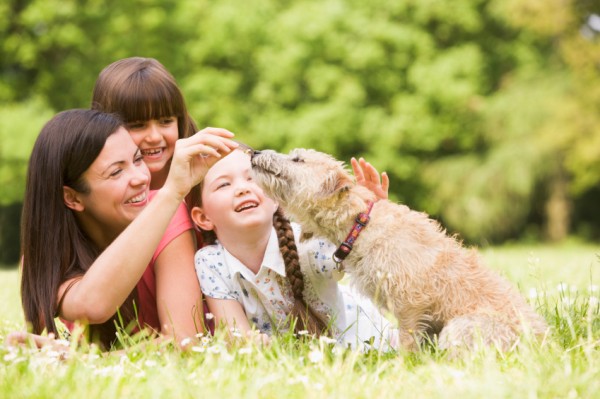
Having a dog companion can have a significant impact on boosting self-confidence in children. Dogs provide unconditional love and support, which can help children feel more confident in their abilities and worth. When children interact with dogs, they often feel a sense of responsibility as they take care of their furry friend's needs.
Taking the lead in caring for a dog allows children to see the positive results of their actions, which boosts their self-esteem. They learn that they are capable of taking care of another living being and making a difference in its life. This sense of accomplishment translates into heightened self-confidence.
Additionally, dogs provide constant companionship and are great listeners. Children can confide in their canine friends without fear of judgment or criticism. This bond builds trust and strengthens children's belief in themselves and their abilities to form connections.
By having a dog companion, children not only gain a loyal friend but also develop a greater sense of self-worth and confidence that will positively impact various aspects of their lives.
Nurturing Self-Esteem and Self-Worth through the Bond
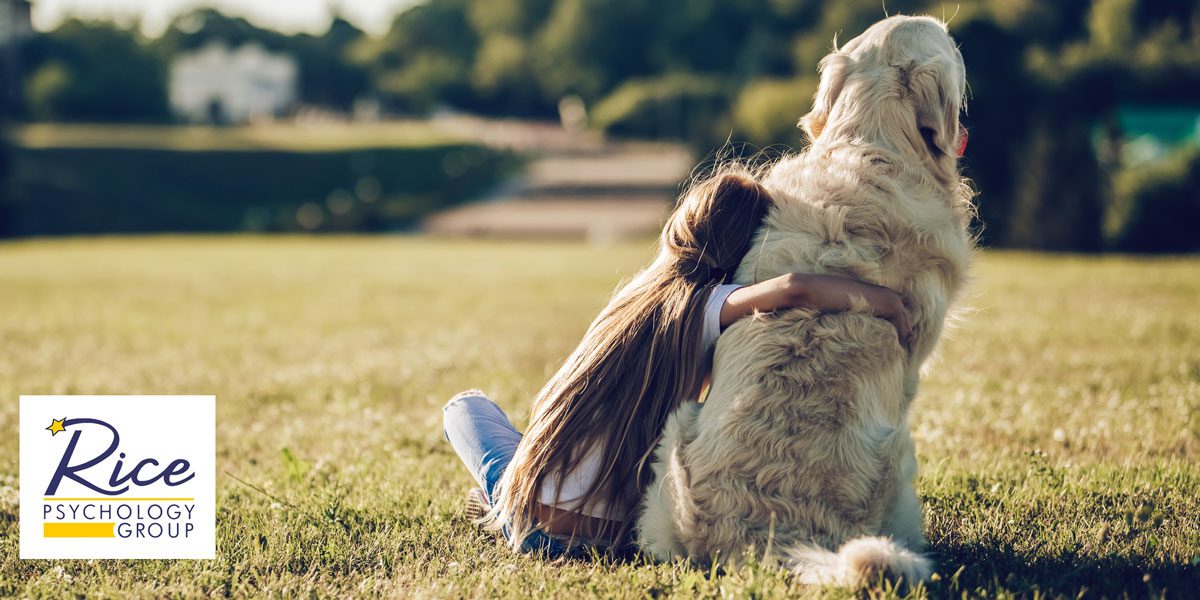
The bond between children and dogs can play a vital role in nurturing their self-esteem and self-worth. Dogs provide unconditional love and acceptance, which helps children develop a positive sense of self. When a child cares for a dog and sees the dog respond positively to their actions, it reinforces their belief in their abilities and worthiness of love.
Interacting with a dog also boosts children's confidence as they learn to communicate effectively with their furry companion. Dogs are non-judgmental listeners, allowing children to express themselves freely without fear of criticism or rejection. This encourages children to trust in their own voice and opinions.
Additionally, taking responsibility for a dog's well-being enhances a child's sense of purpose and importance. When they see how their care affects the dog's overall happiness and health, it instills a sense of pride in their ability to make a positive difference in another living being's life.
Ultimately, the bond between children and dogs nurtures self-esteem and self-worth by providing love, acceptance, communication skills, and responsibility, allowing children to develop into confident individuals who value themselves and others.
Educational Opportunities and Learning Experiences
The bond between children and dogs not only provides emotional and physical benefits, but it also offers numerous educational opportunities and learning experiences. Interacting with a dog can teach children valuable life lessons and skills that can shape their development.
One of the ways dogs can promote learning is through dog-related activities. Children can participate in training sessions or obedience classes with their furry companions, learning important commands and discipline. Additionally, they can engage in educational games or puzzles that involve dogs, fostering cognitive skills such as problem-solving and critical thinking.
Furthermore, owning a dog encourages responsibility and accountability in children. They learn to care for another living being by taking on tasks such as feeding, grooming, and ensuring the dog's overall well-being. This sense of responsibility can extend beyond their interactions with the dog, influencing their behavior in other areas of life.
Overall, the bond between children and dogs offers a wealth of educational opportunities that enhance their cognitive abilities, teach life lessons, and nurture growth and development.
Encouraging Learning through Dog-Related Activities
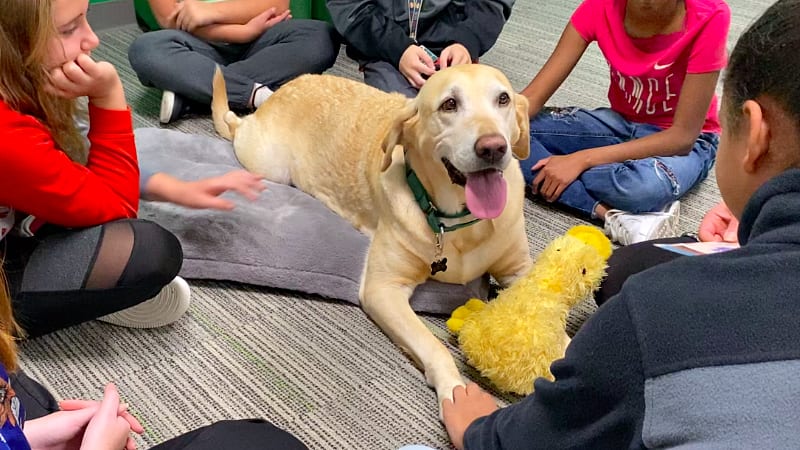
Encouraging learning through dog-related activities can be a beneficial and enjoyable way for children to expand their knowledge. Dogs naturally captivate children's attention and curiosity, making them excellent subjects for educational opportunities. Engaging in activities such as dog training, dog grooming, or even simple obedience commands can teach children valuable skills.
Training a dog involves understanding commands and developing patience and consistency, which can enhance a child's cognitive abilities. Learning about different breeds and their characteristics can spark an interest in geography and biology. Additionally, activities like reading to dogs promote literacy skills, as children gain confidence in their reading abilities without judgment.
Dog-related activities also foster creativity in children. They can participate in art projects inspired by dogs, such as drawing or painting portraits of their furry friends. These activities encourage self-expression and imagination while strengthening their artistic skills.
Overall, incorporating dog-related activities into a child's learning routine not only enhances their knowledge but also cultivates a sense of responsibility and empathy towards animals. It expands their horizons by combining education with something they already love: the unique bond between children and dogs.
Teaching Life Lessons and Skills through Dog Ownership

Dog ownership offers valuable opportunities for children to learn important life lessons and develop essential skills. By caring for a dog, children learn responsibility, as they are responsible for feeding, grooming, and exercising their furry companion. This teaches them the importance of commitment and consistency in meeting the needs of another living being.
Moreover, having a dog can foster empathy and compassion in children. They learn to be sensitive to their dog's emotions and needs, developing a deeper understanding of how their actions can impact others. This empathy extends beyond their canine companion and translates into their interactions with other people as well.
Furthermore, dog ownership provides opportunities for children to learn important skills. They can learn basic training techniques and commands while teaching their dog obedience. This experience instills patience, consistency, and effective communication skills in children.
Overall, owning a dog can be an invaluable educational experience for children, offering them practical life lessons, the cultivation of empathy and compassion, as well as the development of crucial skills that will benefit them throughout their lives.
Health and Well-being Benefits for Children

When it comes to the bond between children and dogs, the benefits extend far beyond emotional and mental health. Research has shown that this unique relationship also has numerous health and well-being benefits for children.
One significant benefit is that having a dog can actually strengthen a child's immune system and reduce allergies. Studies have found that children who grow up with dogs in their households are less likely to develop allergies or asthma later in life. Dogs bring a variety of microorganisms into the home, which can help boost a child's immune system and prevent the development of allergies.
Additionally, dogs promote physical activity and exercise in children. Owning a dog encourages kids to engage in outdoor play and regularly go for walks or play fetch in the park. This increased physical activity not only keeps kids active but also improves their overall cardiovascular health.
Overall, the presence of dogs in a child's life can greatly contribute to their health and well-being. From strengthening the immune system to promoting physical activity, it is clear that the bond between children and dogs offers numerous benefits for children's overall wellness.
Strengthening the Immune System and Reducing Allergies

Research has shown that children who grow up with dogs have stronger immune systems and are less likely to develop allergies. Dogs bring a variety of bacteria and other microorganisms into the home, which helps expose children to different antigens and strengthens their immune system. This exposure can help prevent the development of allergies and reduce the risk of asthma.
A study conducted by the University of Copenhagen found that babies raised in households with dogs had a lower incidence of respiratory tract infections, ear infections, and cold-like symptoms. The study also showed that children who had contact with dogs early in life were less likely to develop allergies later on.
Furthermore, having a dog as a pet encourages children to spend more time outdoors engaging in physical activity. Regular exercise boosts the immune system and overall health, reducing the likelihood of developing chronic conditions such as asthma or allergies.
By strengthening the immune system and reducing susceptibility to allergies, dogs play an essential role in promoting the health and well-being of children.
Promoting Physical Activity and Exercise

Promoting physical activity and exercise is a key benefit of the bond between children and dogs. Dogs need regular exercise to maintain their health, and having a dog can encourage children to be more active as well. Whether it's going for walks, playing fetch in the park, or engaging in a game of tug-of-war, these activities provide opportunities for children to move their bodies and engage in physical fitness.
Regular physical activity has numerous benefits for children. It helps strengthen their muscles and bones, improves cardiovascular health, and boosts overall fitness levels. Additionally, being active with their furry friend can improve coordination, balance, and agility in children.
Having a dog also provides an incentive for children to get outside and enjoy the fresh air. By incorporating exercise into their daily routine through activities with their dog, children are more likely to develop healthy habits that benefit them both physically and mentally.
Overall, the bond between children and dogs promotes physical activity and exercise, contributing to the overall health and well-being of children.
Creating Lifelong Memories and Friendships

Dogs have a way of creating lifelong memories and friendships for children. From the moment they meet, a special bond forms that can last a lifetime. Whether it's playing fetch in the park, snuggling on the couch, or taking long walks together, these experiences become cherished memories that children will treasure forever.
The joy and love that dogs bring into a child's life also extends to their friendships. Owning a dog can provide children with opportunities to connect with others who share a similar interest and passion for animals. Playdates at the dog park or participating in dog-related activities can lead to lasting friendships among both children and their furry companions.
Furthermore, dogs have a unique ability to teach children about compassion, kindness, and empathy. Through their interactions with dogs, children learn to be considerate of others' needs and emotions. These valuable lessons not only create lifelong friendships with their dogs but also extend to their relationships with other people.
Overall, the bond between children and dogs not only creates memorable moments but also lays the foundation for lifelong friendships built on love, trust, and shared experiences. Dogs truly have a way of enriching a child's life while simultaneously forging connections that can last well into adulthood.
Forming Unforgettable Moments and Cherished Memories

The bond between children and dogs creates countless opportunities for forming unforgettable moments and cherished memories. Whether it's watching their dog playfully chase a ball in the park or snuggling up with their furry companion for story time, these experiences leave a lasting impression on children.
Children often form strong emotional connections with their dogs, leading to heartwarming memories that they will treasure for a lifetime. The laughter and joy shared during playtime, the comfort found in cuddles, and the adventures embarked upon together all contribute to these unforgettable moments.
In addition, dogs often become integral parts of family traditions and special occasions. From birthdays and holidays to family vacations, the presence of a beloved dog brings an extra layer of love and excitement to these moments. Children also have the opportunity to capture these memories through photographs or videos, allowing them to relive these precious times in the future.
These memories not only create enduring bonds between children and dogs but also shape their understanding of companionship, love, and happiness. The lessons learned through these experiences serve as a foundation for their relationships with animals and humans alike as they navigate through life.
Building Lifelong Friendships and Companionship

One of the most beautiful aspects of the bond between children and dogs is the opportunity it provides for building lifelong friendships and companionship. Dogs have an innate ability to provide unwavering loyalty, constant companionship, and unconditional love to their human counterparts. For children, this can be a transformative experience that shapes their understanding of friendship and companionship.
Through their relationship with a dog, children learn the value of being a reliable friend and companion. They discover that a dog will always be there to listen without judgment or criticism, offering comfort and support in times of joy or sadness. This understanding fosters empathy and compassion within children, as they realize the importance of being there for others.
Dogs also offer a unique form of companionship that is free from judgment or expectations. They provide a sense of comfort and security, serving as a constant presence in a child's life. This can create lasting memories and moments shared together, strengthening the bond between child and dog.
The friendship and companionship built between children and dogs can last a lifetime. Even as children grow into adults, the memories and lessons learned from their furry friends stay with them forever. Dogs become trusted confidants who offer unwavering support throughout life's ups and downs.
In conclusion, the bond between children and dogs goes beyond mere ownership or responsibility – it is a connection that creates lifelong friendships and companionship. Through the unique affectionate nature of dogs, children learn valuable life lessons about love, loyalty, compassion, trust, and friendship that extend far beyond their childhood years.
Ensuring Safety and Supervision
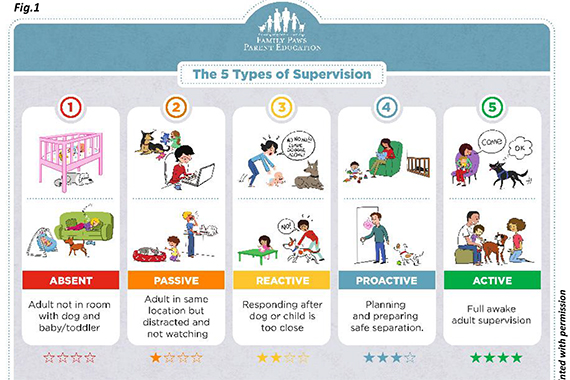
Ensuring the safety and supervision of children and dogs is of utmost importance in maintaining a healthy bond between them. While the relationship between children and dogs can be incredibly rewarding, it is essential to prioritize safety to prevent any accidents or harm.
Supervising interactions between children and dogs is crucial to prevent any potential risks. Adult supervision is necessary, especially when young children are involved. This ensures that any unforeseen situations can be quickly addressed and managed.
Teaching children about dog safety and proper handling is also vital in promoting a safe environment. They should understand how to approach animals respectfully, avoid provoking them, and recognize signs of fear or aggression. Teaching children to always ask for permission before petting or playing with a dog instills a sense of responsibility and caution.
By prioritizing safety and providing proper supervision, parents can create an environment where both children and dogs can enjoy a harmonious bond without compromising anyone's well-being.
Importance of Supervising Children and Dogs Interactions

Supervising children and dogs interactions is of utmost importance to ensure the safety and well-being of both parties. While the bond between children and dogs can be extraordinary, it is essential to understand that dogs are animals with instincts and behaviors that may be unpredictable at times.
Supervision allows parents and caregivers to intervene if any potentially dangerous situations arise. For example, a child may unknowingly provoke a dog's aggression or behave in a way that makes the dog uncomfortable. In such instances, immediate supervision can prevent any harm from occurring.
Additionally, supervision provides an opportunity for teaching proper behavior around dogs. Children can learn the importance of respecting a dog's space, how to approach them safely, and understanding their body language. This knowledge ensures positive interactions and reduces the risk of accidents or injuries.
Overall, supervising children and dogs interactions fosters a safe environment where both can enjoy their bond while promoting respect, understanding, and ultimately enhancing the relationship between children and their canine companions.
Teaching Children Dog Safety and Proper Handling

Teaching children dog safety and proper handling is crucial in ensuring the well-being of both the child and the dog. By instilling these practices, parents can help prevent accidents or incidents that may occur during interactions between children and dogs.
Firstly, children should be taught to approach a dog calmly and respectfully, avoiding sudden movements that could startle the dog. They need to understand that not all dogs are friendly and may require space, so it's important to teach them to ask for permission before petting or approaching a new dog.
Additionally, instructing children on how to read a dog's body language can help them understand when a dog is feeling stressed or uncomfortable. This knowledge empowers children to recognize warning signs such as growling or bared teeth, prompting them to back away slowly rather than escalate the situation.
Furthermore, proper handling techniques must be demonstrated to children. They should be taught not to pull on a dog's tail or ears, as this can cause pain and distress. Encouraging gentle touches instead helps foster trust between the child and the dog.
Parents should also emphasize the importance of never disturbing a dog while it is eating, sleeping, or caring for puppies as dogs may become protective during these times.
Overall, teaching children dog safety and proper handling promotes a positive relationship between children and dogs while minimizing potential risks for both parties involved. It is an essential aspect of responsible pet ownership that cultivates respect and understanding in young individuals.
Conclusion
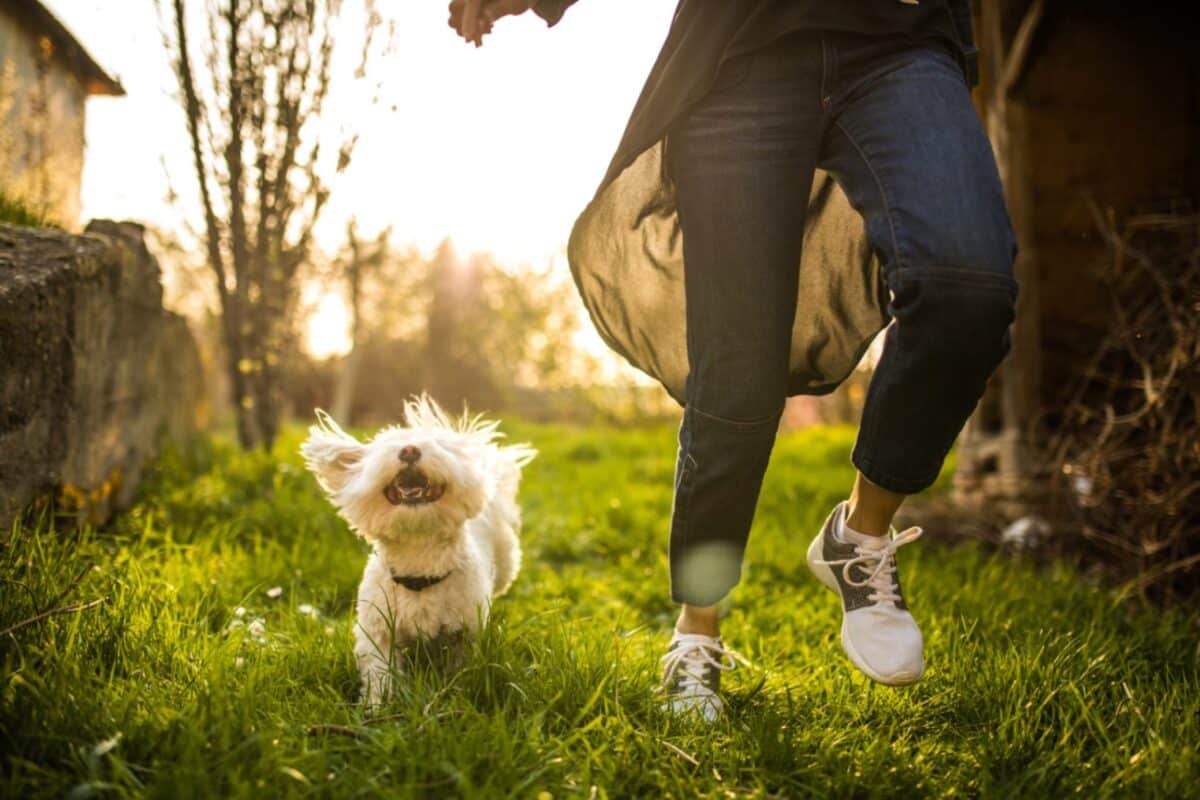
In conclusion, the bond between children and dogs is truly unique and offers a multitude of benefits that contribute to the emotional, physical, and social development of children. By forming a strong connection with their canine companions, children experience improved emotional and mental health, including reduced stress and anxiety. They also develop a sense of responsibility and empathy through caring for a dog, fostering compassion and understanding.
Dog ownership promotes social skills and communication as children learn to interact with their furry friends. It also enhances language development as they communicate with their dogs through words and non-verbal cues. The presence of a dog boosts self-confidence and self-esteem in children, nurturing their sense of worth and belonging.
Moreover, having a dog provides numerous educational opportunities and learning experiences for children. They can engage in dog-related activities that encourage learning while teaching important life lessons and skills.
Additionally, the bond between children and dogs has positive effects on their health and well-being by strengthening their immune system, reducing allergies, promoting physical activity, and encouraging exercise.
Most importantly, the relationship between children and dogs creates lifelong memories, friendships, companionship, and instills a sense of love and loyalty. However, it is crucial to ensure safety by supervising interactions between children and dogs, teaching proper handling techniques.
Overall, the unique bond between children and dogs plays a pivotal role in shaping a child's life by providing love, support, joy, companionship, educational opportunities,and life lessons.
The Unique and Lasting Bond Between Children and Dogs
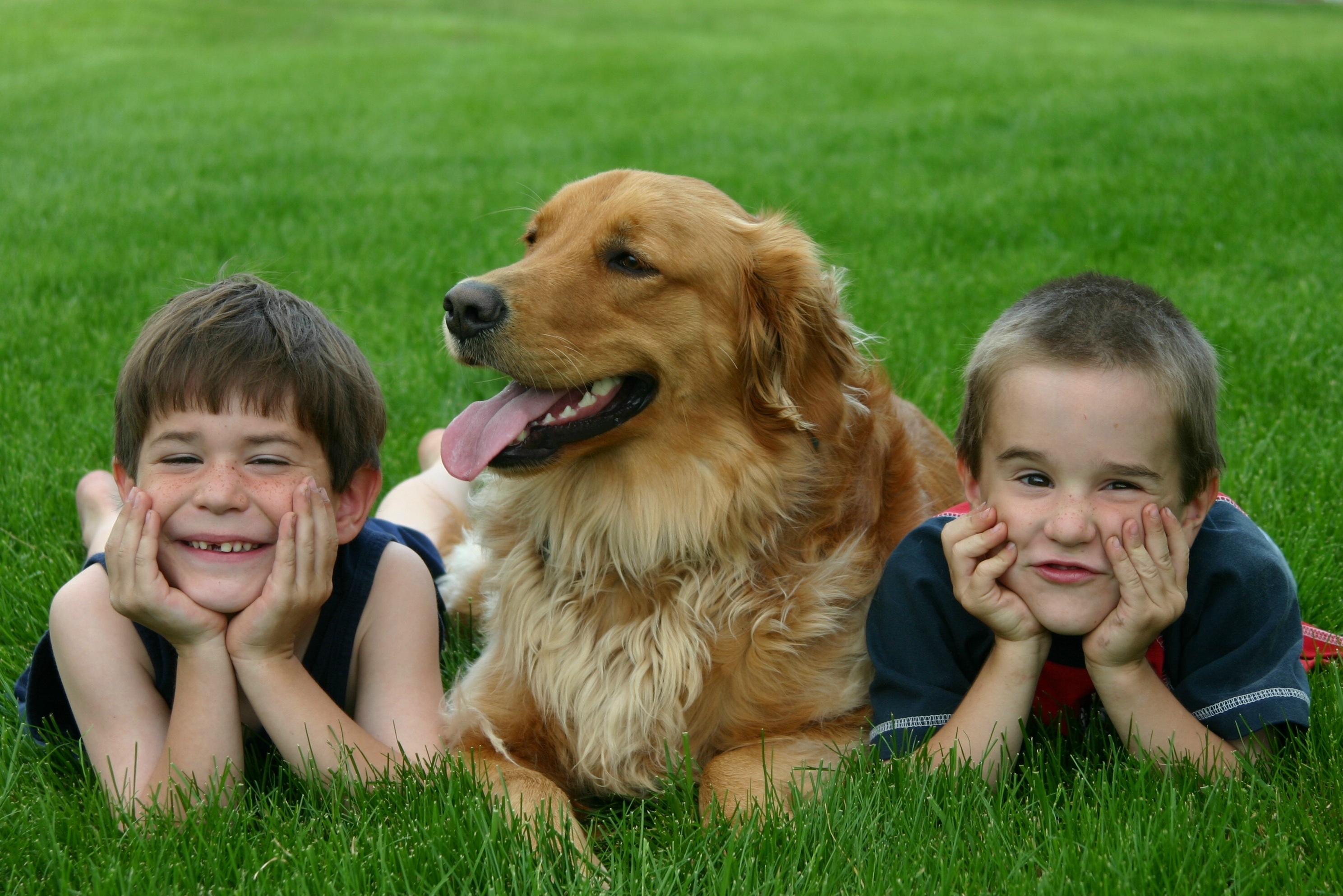
The bond between children and dogs is truly special and enduring. It goes beyond being just a friendship; it becomes a deep and unconditional connection that can last a lifetime. Children often form an emotional attachment to their canine companions, finding comfort, love, and support in their presence. Dogs have a unique ability to sense and respond to a child's emotions, providing a source of solace during difficult times.
This bond also extends to physical health benefits. Studies have shown that children who have a dog in their household are more likely to engage in physical activity, leading to better overall fitness and cardiovascular health. Playing with dogs can also release endorphins in children, promoting feelings of happiness and joy.
Additionally, having a dog teaches children important life lessons such as responsibility and empathy. Caring for a dog requires feeding, grooming, and exercising them regularly, instilling a sense of responsibility in children from an early age. The unconditional love and loyalty that dogs offer can foster empathy and compassion in children as they learn to understand the needs and emotions of another living being.
Furthermore, owning a dog can improve social skills and communication in children. Dogs provide opportunities for social interactions when going on walks or visiting parks where other dog owners congregate. This can help children develop their social skills by learning how to approach others and initiate conversations based on shared interests in dogs.
The relationship between children and dogs also has educational benefits. Dogs can be incorporated into various learning activities such as reading aloud to them or teaching them new tricks, enabling children to develop their literacy skills while building confidence in their abilities.
Furthermore, studies have shown that dog ownership has health benefits for children. Growing up with dogs can strengthen the immune system of children, making them less susceptible to allergies and respiratory illnesses. Additionally, having a dog encourages physical activity through playtime and walks, helping to combat childhood obesity.
Beyond the physical and educational advantages, the bond between children and dogs creates lifelong memories and friendships. Unforgettable moments of joy, laughter, and companionship are formed through shared experiences, creating cherished memories that children will carry with them into adulthood. Dogs offer a constant source of companionship throughout a child's development, providing unwavering support during both happy and challenging times.
As with any interaction involving children and pets, safety and supervision are vital. It is crucial for parents to teach their children about dog safety and proper handling to prevent any accidents or harm to either the child or the dog.
In conclusion, the bond between children and dogs is truly unique and lasting. It encompasses emotional support, physical health benefits, developmental growth, educational opportunities, and the creation of lifelong memories. Dogs play a significant role in shaping a child's life by teaching them responsibility, empathy, social skills, self-confidence, and offering unconditional love. The bond between children and dogs is a precious one that should be nurtured and cherished for its incredible impact on a child's overall well-being and development.
The Role of Dogs in Shaping a Child's Life

Dogs play a significant role in shaping a child's life, providing them with valuable experiences and lessons that contribute to their overall development. These loyal companions offer unwavering love, support, and unconditional acceptance, making them the perfect confidants for children. Dogs teach children important life skills such as responsibility and empathy. By caring for their furry friends, children learn about the value of taking care of another living being and develop empathy by understanding their dog's needs and emotions.
Furthermore, dogs promote social skills and communication in children. Interacting with their canine friends encourages children to be more outgoing and confident when engaging with others. Additionally, dogs provide opportunities for educational experiences. Children can participate in activities like training sessions or dog-related clubs, which enhance learning through hands-on experiences.
Moreover, these four-legged creatures contribute to a child's physical health by promoting an active lifestyle. Regular walks and playtime with their dog improve cardiovascular fitness and reduce the risk of obesity. Dogs have even been shown to strengthen the immune system and reduce allergies in children.
Overall, the unique bond between children and dogs has a lasting impact on a child's life by fostering emotional well-being, teaching valuable life lessons, promoting social skills, contributing to physical health, creating long-lasting memories, and ensuring safety through supervision of interactions.




0 Comments